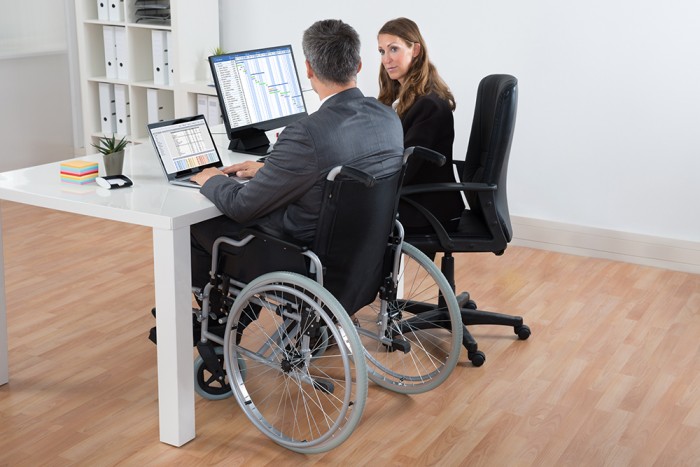Member Resources Requested for PA VETCONNECT Program
Recently, the Pennsylvania Department of Military and Veterans Affairs (DMVA), Bureau of Programs, Initiatives, Reintegration, and Outreach reached out to RCPA to share information with members about PA VETCONNECT, which is an exciting new regional outreach initiative. Members can assist with this program by sharing resources and/or services that can assist a veteran in need.
Pennsylvania is home to nearly 800,000 veterans – the fourth largest veteran population in the nation. The DMVA recognizes that they are only one player of a vast network of organizations that are necessary to successfully serve these veterans. While DMVA – through its Office of Veterans Affairs (OVA) – provides a number of programs and benefits for veterans, there are still areas for which they do not have formal programs such as unemployment, homelessness, mental health issues, post-traumatic stress disorder (PTSD), and traumatic brain injury (TBI). DMVA hopes to address these gaps through creative inter-agency coordination and community partnerships.
The first phase of PA VETCONNECT encompasses a three-and-a-half-year rollout that began in December of 2018. During the first six months of this phase the concept was developed, requirements were documented, vision & mission statements were defined, initial stakeholders were identified, a focus group was engaged, and regions were established across the Commonwealth. DMVA-OVA looked at current processes to determine the most economical approach to accomplish this goal. To that end, three employee positions were repurposed and/or roles were redefined to administer and implement PA VETCONNECT.
By dividing the Commonwealth into five regions, DMVA will be better able to identify and create partnerships with local community resources and providers that can serve veterans and their families. This includes resources that are not traditionally thought of as veterans’ services or programs. Once identified, the information on the service provider can be entered into a resource database that will be made available to County Directors of Veterans’ Affairs, Veteran Service Officers & Specialists, and any other veterans’ advocates for quick and easy reference.
DMVA-OVA further scrutinized its business plan and found cost saving measures to make several operational functions run more efficiently. The monies realized from the noted cost savings measures, as well as small cuts in other areas, created enough funding to support the hiring of the first five regional personnel for fiscal year 2019/2020. Moreover, DMVA will look at existing department owned facilities or partnerships with sister agencies to house regional personnel so as not to incur additional facility expenses.
Regional Program Outreach Coordinators (RPOCs) will be the “boots on the ground” individuals who will support the outreach team throughout the region, and establish and maintain working relationships with community leaders and local/regional organizations, Veteran Service Organizations, local/county/state government agencies, and other community partners, to gather information and identify resources to facilitate the delivery of services to veterans and their beneficiaries.
One of the elements of this project is a unique Information and Referral (I&R) database that provides those who serve veterans with the names, contact information, and basic overview of organizations that have resources to address veteran-specific needs. This database will eventually contain thousands of organizations throughout the Commonwealth that have the resources to assist veterans’ needs. With a county system already staffed by County Directors of Veterans Affairs, and a vast network of nonprofit organizations at their disposal, this I&R database will have the flexibility to connect veterans, service members, and their dependents to the programs and services they need regardless of the municipality, county, or region where they reside. Through this tool, advocates can more easily assist veterans in locating organizations or resources throughout the state that offer programs and services geared to their specific needs (Note: It is not the intent that advocates would simply hand the veteran or family member a printout of available resources. They believe the best practice would include working with the veteran or family member to find the appropriate resource or service by contacting the service provider, setting up appointments, arranging transportation, etc.).
The DMVA realizes that there is no way a program of this magnitude can be successful without the cooperation of our community partners, especially those who are on the ground level and work every day to improve the lives of veterans. The information and referral tool will roll out in phases, with the first quarter of 2020 targeted for a full statewide rollout.
Members can further assist in this project by completing the Resource Application to self-report. Members should note that the service provided need not consist of veteran-specific assistance or services; you would just need to provide services a veteran might need. Contact Melissa Dehoff, RCPA Rehabilitation Services Director, with questions.
LIFE Program Expands in Commonwealth
The Pennsylvania Department of Human Services (DHS) recently announced a fourteen-county expansion of the Living Independence For the Elderly (LIFE) program. LIFE is a long-term care program that assists seniors with living independently in their homes, while receiving services and supports that meet their health and personal needs. LIFE is one of the Commonwealth’s home and community-based services (HCBS) options that currently serves over 7,000 individuals.
The LIFE program was implemented initially in 1998, and is known in other states across the nation as the Program of All-Inclusive Care for the Elderly (PACE). In order to be eligible for the LIFE program, an individual must be 55 or older, meet the level of care for a skilled nursing facility or special rehabilitation facility, and be able to be safely served in the community.
Through this expansion, LIFE programs will be established in the following counties: Bradford, Cameron, Carbon, Centre, Clearfield, Elk, Fulton, Jefferson, Monroe, Potter, Sullivan, Susquehanna, Tioga, and Wayne. Contact Melissa Dehoff, RCPA Rehabilitation Services Director, with questions.
October is National Disability Employment Awareness Month
The US Department of Labor has announced ‘The Right Talent, Right Now’ as the theme for 2019 National Disability Employment Awareness Month (NDEAM). Observed each October, NDEAM celebrates the contributions of workers with disabilities and educates about the value of a workforce inclusive of their skills and talents. The 2019 theme emphasizes the essential role that people with disabilities play in America’s economic success, especially in an era when historically low unemployment and global competition are creating a high demand for skilled talent. The Department’s Office of Disability Employment Policy (ODEP) administers NDEAM.
“Every day, individuals with disabilities add significant value and talent to our workforce and economy,” said US Secretary of Labor Alexander Acosta. “Individuals with disabilities offer employers diverse perspectives on how to tackle challenges and achieve success. Individuals with disabilities have the right talent, right now.”
Observed annually in October, NDEAM celebrates America’s workers with disabilities both past and present, and emphasizes the importance of inclusive policies and practices, to ensure that all Americans who want to work can work and have access to services and supports to enable them to do so. With continued advances in such supports, including accessible technology, it is easier than ever before for America’s employers to hire people with disabilities in high-demand jobs.
The official 2019 NDEAM poster is available for downloading or to order. For additional information, contact Carol Ferenz.
Emergency Preparedness – A Timely Topic for Everyone
September is Emergency Preparedness Month. While there frequently seems to be a day, week, or month dedicated to recognizing or learning about various topics, this particular topic became a pertinent event this week. The newly renovated central office of a LEAP (Life Enrichment Advancing People), a nonprofit agency in Maine, was leveled in an explosion on Monday. LEAP provides community services to individuals with intellectual disabilities. The explosion occurred on Monday morning shortly after the LEAP Maintenance Director noticed a strong smell of gas in the basement of the building and alerted everyone to evacuate the building before it exploded. Sadly, one of the firefighters who responded to the call was killed in the explosion, and six other people were injured, including the Maintenance Director.
LEAP is a member of ANCOR, as is RCPA, and so we share a connection. There has been much conversation regarding this incident in an online ANCOR Forum. LEAP CEO Darryl Wood responded to the outpouring of support on this forum, stating:
There are heroes among us. Our maintenance director evacuated everyone and was working with the first responders when the explosion occurred. Many lives were saved by an attentive person and a team that evacuated as we practiced. Don’t take those emergency plans for granted folks.
Inspired by Darryl’s message, ANCOR is offering two webinar recordings about emergency preparedness free of charge to their members. Offering these webinars is only a small part — but hopefully a meaningful part — of how ANCOR works to support our friends at LEAP and, more broadly, ANCOR members who experience all manner of disasters.
Both of these webinars, which were broadcast previously, offer information that remains relevant for providers seeking to understand the steps they can take to be more responsive to disasters of all kinds. To access the webinars, please use the following links:
- CMS Emergency Preparedness Requirements: Tips and Resources for ICFs (originally broadcast March 2018)
- Emergencies: Panicked or Prepared? (originally broadcast April 2016)
We hope all providers take the time to reflect on disaster preparedness by watching these recordings, as well as to review your Disaster Plans and training for all staff and people supported. Other actions that have been suggested include:
- Evaluate the location of your meeting place when evacuating. In this case, it was really far from the building, yet right on the periphery of the blast area.
- When evacuating, people should leave immediately and not stop to pick up personal items.
- People should not attempt to use their cell phones while the emergency is in process. Among other things, phones can trigger explosions.
- If you have propane at any one of your sites, you should have a propane detector.
In an upcoming issue of RCPA News, there will be additional information provided, as well as resources available to assist agencies with emergency preparedness. For any questions regarding this info or how to assist LEAP in their recovery from this disaster, contact Carol Ferenz, RCPA IDD Division Director.
CHC Third Thursday Webinar Scheduled for Sept 19
The Office of Long-Term Living (OLTL) will conduct the next Community HealthChoices (CHC) Third Thursday webinar on September 19, 2019 at 1:30 pm. During this webinar, OLTL’s Deputy Secretary, Kevin Hancock, will provide updates on the CHC program. Registration is required to participate in the webinar. Once registered, you will receive a confirmation email containing information about joining the webinar.
Reminder: All CHC related information can be found here. Comments can be submitted electronically via email. If you have any questions, please contact the OLTL Bureau of Policy Development and Communications Management at 717-857-3280.
OVR Pre-ETS Policy, Procedure, and Service Model
DHS Issues RFI Regarding Models of LTC For Individuals With Complex Needs
Clarification Regarding Fraud, Waste, and Abuse Training Requirements
RCPA’s Human Resources Committee met this week, and there was discussion regarding provider responsibilities for trainings for their employees and resources available to provide the needed training. We want to clarify that these requirements apply to providers of Medicare services, not Medicaid.
CMS offers an online resource – Medicare Learning Network (MLN) as a free resource to the public. One area covered in the MLN is Medicare Parts C and D Compliance and Fraud, Waste, and Abuse (FWA) Trainings. Prior to January 1, 2019, CMS required providers of Medicare services to utilize their training to meet this requirement. Beginning January 1, 2019, CMS no longer requires health care providers participating in Medicare Advantage and Part D plans to complete CMS issued training, in order to allow the training to be offered in a manner that is tailored to each organization’s operations and risks.
Providers of Medicaid Services (Waiver services are funded through Medicaid) are not mandated to provide FWA training to their employees. Although this is not a mandated training, providers may offer this training as a part of your compliance training for all staff.
For more information regarding these training requirements, please refer to the CMS website and the Compliance Program Frequently Asked Questions document. If you have any further questions, please contact Carol Ferenz.
DHS Announces MA Fee Schedule Revisions in OBRA Waiver
Included in the August 24, 2019 Pennsylvania Bulletin was a notice from the Department of Human Services (DHS) about a change in the fee schedule rates for Personal Assistance Services (PAS) procedure codes (W1793, W1793TT, W1792, and W1792TU), and for Residential Habilitation procedure codes W0100 and W0102 in the Medical Assistance OBRA Waiver. The changes in the fee schedule rates for these services will be effective on January 1, 2020.
The existing fee schedule rates for PAS (Agency) and PAS (CSLA), procedure codes W1793 and W1793 TT, are increased by 2%. The intent of the increase is to provide for a wage increase for direct care workers providing agency-directed personal assistance services. DHS is also increasing the PAS (Consumer) and PAS (Consumer Overtime) rates, procedure codes W1792, and W1792 TU, to maintain equity in all the PAS rates in the OBRA waiver.
In addition, the existing fee schedule rates for Residential Habilitation procedure codes W0100 and W0102 are increased to include a 3 percent vacancy factor. A vacancy factor had not previously been included in the rate methodology; however, the Department recognizes that providers may not always deliver services to participants at full capacity. Therefore, a 3 percent vacancy factor will be applied to adjust the rates to account for the days the residential provider did not provide services to the participant. The provider cannot bill for days the participant did not receive services, but rather is paid a higher rate for days the participant received services. A vacancy factor of 3 percent was applied to reflect payment to providers for an average number of vacant days.
The fee schedule rates are available in the notice. Written comments regarding these fee schedule rates will be accepted through close of business on Monday, September 23, 2019 and should be sent to the Department of Human Services, Office of Long-Term Living, Bureau of Policy Development and Communications Management, Attention: Marilyn Yocum, PO Box 8025, Harrisburg, PA 17105-8025. Comments may also be submitted to the Department via email. Comments received within 30 days will be considered in subsequent revisions to the fee schedule.















